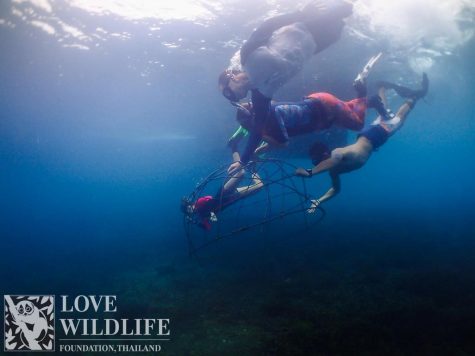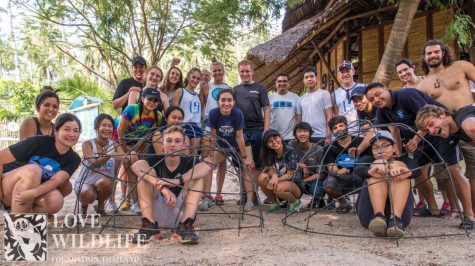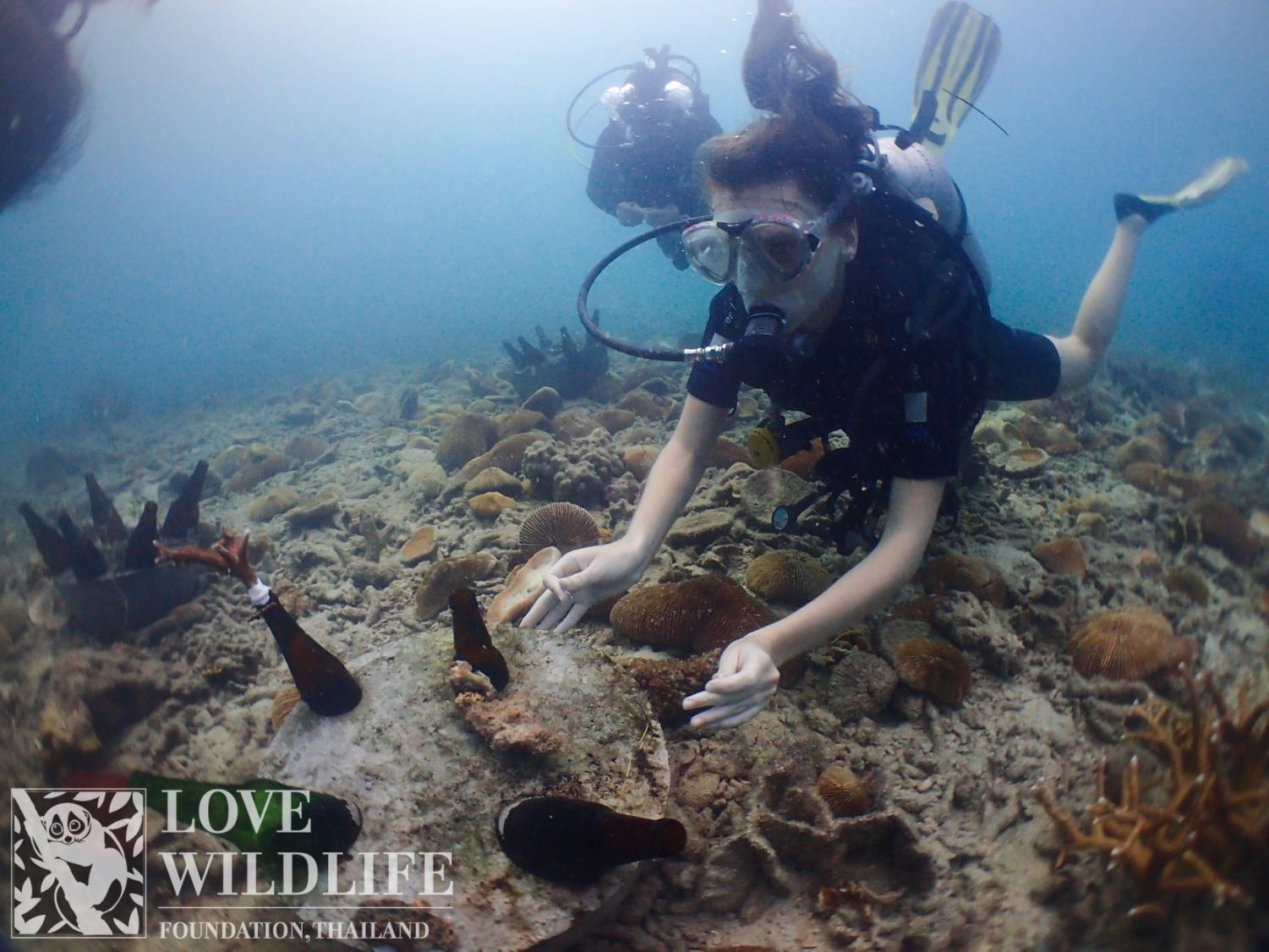Saving the Ocean in Koh Tao
March 7, 2018
 A natural wonder that exists in an array of colors and shapes, coral reefs cover parts of the ocean floor and provide a home to 25% of all marine animals. While their beauty is admired by the world, coral reefs are currently one of the most threatened ecosystems on the earth. In an effort to improve marine life, one of the GCW trips offered at ISB is ‘Koh Tao Reef Restoration’, which provided an opportunity for students to participate in the Project Deep Blue 2018.
A natural wonder that exists in an array of colors and shapes, coral reefs cover parts of the ocean floor and provide a home to 25% of all marine animals. While their beauty is admired by the world, coral reefs are currently one of the most threatened ecosystems on the earth. In an effort to improve marine life, one of the GCW trips offered at ISB is ‘Koh Tao Reef Restoration’, which provided an opportunity for students to participate in the Project Deep Blue 2018.
When ISB students visited Koh Tao five years ago, most of the marine life had abandoned the coral reefs of Koh Tao and moved to other locations. Therefore, throughout GCW over the past few years, students have designed and built artificial reefs from PVC pipes and then secured them to the ocean floor to become a part of the coral nurseries. Thankfully, on this year’s trip, a great improvement in coral life was observed! Through the students’ constant efforts over the years, animals have begun to move back, and there have been significantly more whale sightings than before.
Two students were so inspired by the huge impact they have made, that they will be interning with New Heaven in Koh Tao over the summer before heading off to university. These students are Jenny Fagervik (12) and Phoom Kuljanyavivat (12).
A typical day during GCW, as described by Phoom, included scuba diving and snorkeling as a part of reef restoration. “During the morning session, we had a crash course in marine conservation and ecology, the impacts of rapid-expanding tourism industry, and role of corals in the ecology and biodiversity of Koh Tao. Each day hosted a series of various activities, in which we participated in artificial reef construction, snorkeling and even voting in a PDB debate between two of the staff members at New Heaven. Some of the divers amongst our group also took part in some hands-on reef restoration under water.”
I realized that my passion for marine biology extends to the physical act of restoring marine ecosystems. — Jenny Fagervik
After this impactful trip, Jenny explains that the reason she chose to continue this journey by doing an internship is that “after going through the experience of diving and planting these artificial reefs, I realized that my passion for marine biology extends to the physical act of restoring marine ecosystems. In the future, I will be pursuing a career in marine biology, therefore this GCW experience was greatly beneficial to growing and understanding my passion for the ocean.”
Jenny further states, “after realizing that I had a great passion for the hands-on experience of planting a coral reef and tending to baby turtles I looked into pursuing further experiences with this group of marine biologists. I greatly appreciate the opportunities this GCW has brought me, as it allowed me to continue to facilitate the growth of a subject I am truly interested in pursuing as a career in the future.”
Phoom expressed similar motivations for his internship over the summer. He states, “personally, this experience is invaluable and meaningful to me as I have always been passionate about biology and marine ecology. This opportunity allowed me to see the world differently from the perspective of the conservationists and become aware of the profound impacts created by human on marine environments.”
 This trip has made a significant impact on all students who participated in this trip. Phoom describes that he “never knew how much damage human society has caused to the marine ecology until I saw it for myself during this trip – and it was shocking. An immense number of coral reefs had bleached and were unable to support the lives under water. We were also told that the locals and the tourists on this island are not yet aware of how important it is for all of us to help sustain this type of ecosystem.”
This trip has made a significant impact on all students who participated in this trip. Phoom describes that he “never knew how much damage human society has caused to the marine ecology until I saw it for myself during this trip – and it was shocking. An immense number of coral reefs had bleached and were unable to support the lives under water. We were also told that the locals and the tourists on this island are not yet aware of how important it is for all of us to help sustain this type of ecosystem.”
He elaborates, “not only was this GCW a wonderful experience for me to enjoy recreational snorkeling with turtles and fish, but it also gave me a chance to learn how to sustain the natural resources and the ecosystem which has been exploited by humans for decades.”
While there are many service trips that students go on, it is sometimes difficult to observe the direct impacts we can make on the world. On this trip, however, the positive change of coral reefs in Koh Tao is significantly evident since ISB students have continued to visit Koh Tao and help with reef restoration. This is an incredible change to witness for all the students who were a part of this amazing and productive project! And furthermore, it truly shows the extent to which GCW can be used as an opportunity to change the world.

Conor DUFFY • Mar 8, 2018 at 1:32 pm
This is a GREAT Article! And a great feat for ISB students… so cool to see that we are indeed making a positive change in the environment. Man… does the world need people like this!